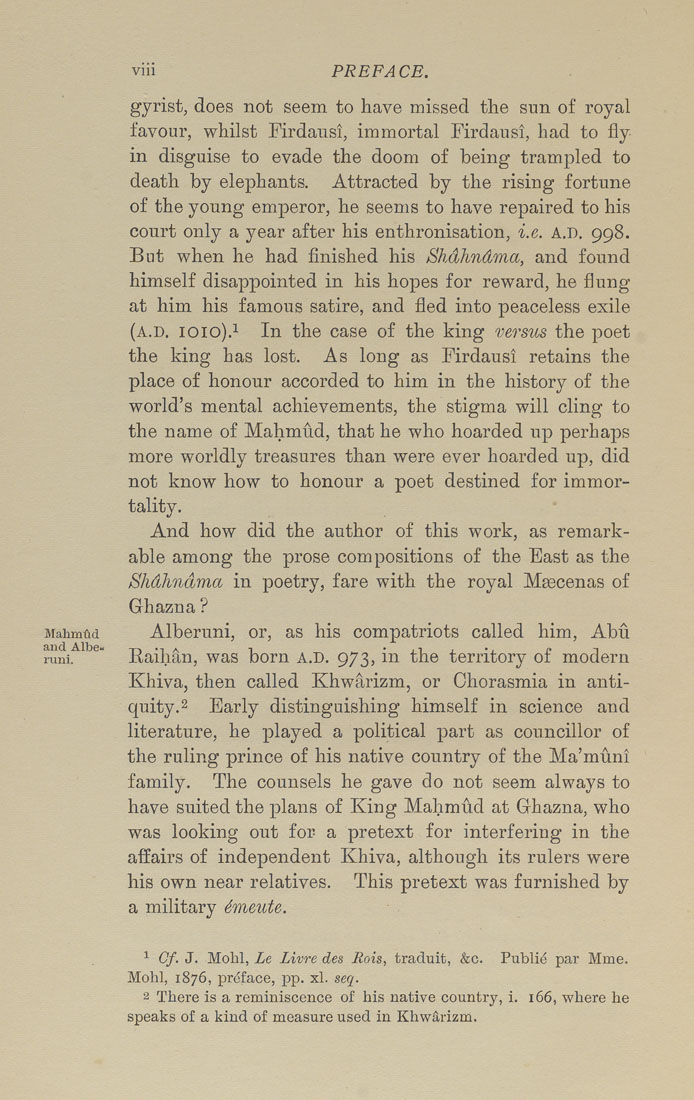Bīrūnī, Muḥammad ibn Aḥmad, Alberuni's India (v. 1)
(London : Kegan Paul, Trench, Trübner & Co., 1910.)
|
||
|
|
|
|
| Page viii |

viii PREFA CB. gyrist, does not seem to have missed the sun of royal favour, whilst Pirdausi, immortal Firdausi, had to fly in disguise to evade the doom of being trampled to death by elephants. Attracted by the rising fortune of the young emperor, he seems to have repaired to his court only a year after his enthronisation, i.e. A.D. 998. But when he had finished his Shdhndma, and found himself disappointed in his hopes for reward, he flung at him his famous satire, and fled into peaceless exile (a.d. ioio).^ In the case of the king versus the poet the king has lost. As long as Firdausi retains the place of honour accorded to him in the history of the world's mental achievements, the stigma will cling to the name of Mahmud, that he who hoarded up perhaps more worldly treasures than were ever hoarded up, did not know how to honour a poet destined for immor¬ tality. And how did the author of this work, as remark¬ able among the prose compositions of the East as the Shdhndma in poetry, fare with the royal Mascenas of Ghazna ? Mahmftd Alberuni, or, as his compatriots called him, Abii runi. ^" Eaihan, was born a.d. 973, in the territory of modern Khiva, then called Khwarizm, or Chorasmia in anti¬ quity. 2 Early distinguishing himself in science and literature, he played a political part as councillor of the ruling prince of his native country of the Ma'miini family. The counsels he gave do not seem always to have suited the plans of King Mahmud at Ghazna, who was looking out for a pretext for interfering in the affairs of independent Khiva, although its rulers were his own near relatives. This pretext was furnished by a military Smeute. ^ Of. J. Mohl, Le Livre des Hois, traduit, &c. Public par Mme. Mohl, 1876, preface, pp. xl. seq. 2 There is a reminiscence of his native country, i. 166, where he speaks of a kind of measure used in Khwarizm. |
| Page viii |







